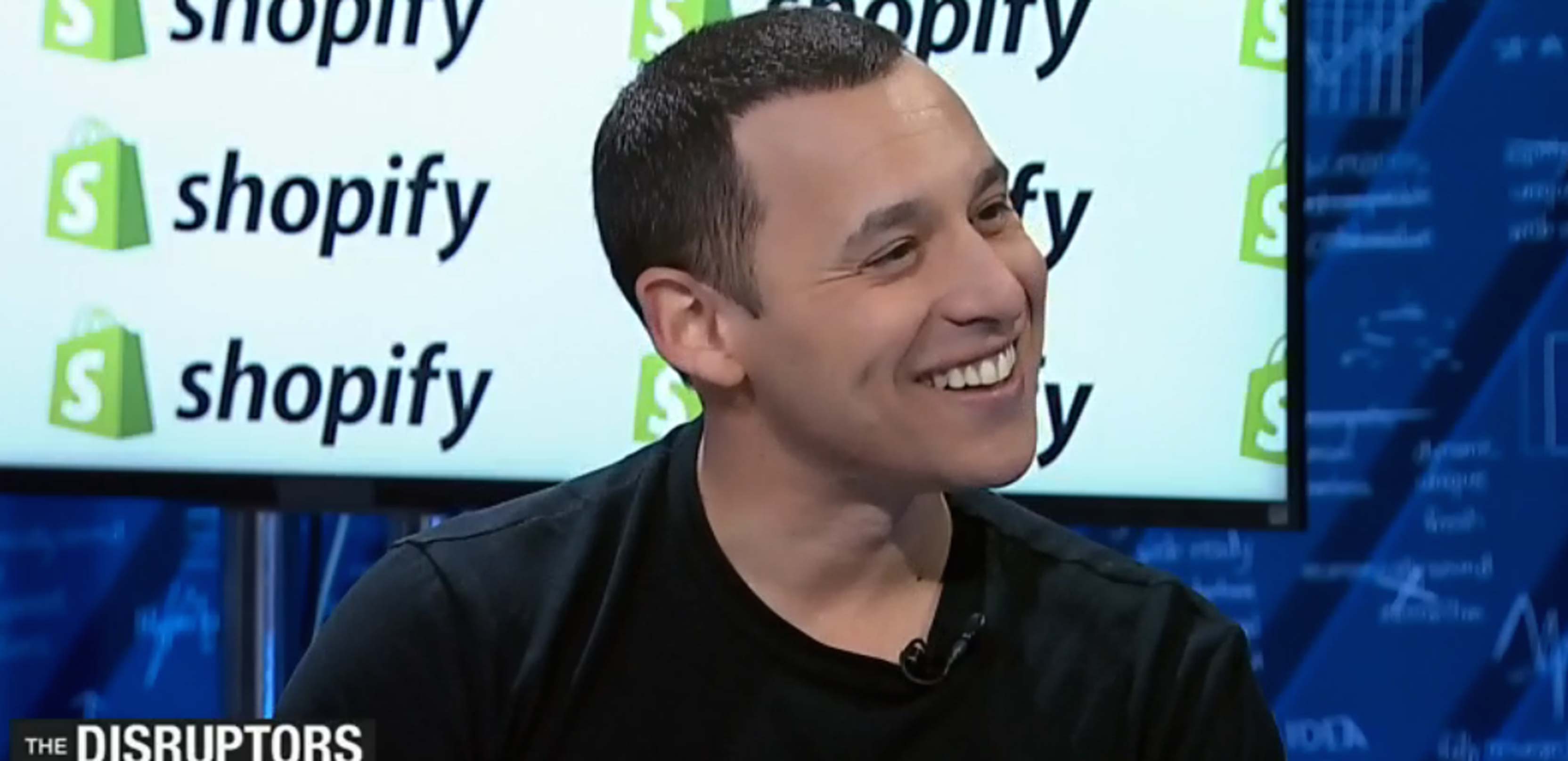
On the latest episode of The Disruptors, co-host Bruce Croxon sat down with Shopify COO Harley Finkelstein to discuss the company’s growth, as well as his thoughts on the backlash against Shopify for its decision to continue powering Breitbart’s store.
Finkelstein said that they’ve been doing well based on their Q4 results, and they’re focused on the future (the company predicted $785 million USD total revenue for this year).
“If you ask most people what Shopify does today, they would tell you that Shopify enables you to build an online store,” said Finkelstein. “And what we’re really thinking about is — we want to enable merchants to sell anywhere, whether that’s online or offline, through Facebook, Pinterest, or-in person.”
Finkelstein said that from the beginning, Shopify’s philosophy has been how to make selling products easier for entrepreneurs. They’ve looked at what entrepreneurs were already using, and how they could provide a better version. The company recently opened an R&D centre in Toronto to support these plans.
Finkelstein gave the example of shipping, and how Shopify went to shipping companies and negotiated on behalf of all of their merchants, which gave them better economies of scale; in particular, Finkelstein said the company has been focused on improving their payments, shipping, and loan products like Shopify Capital.
While Finkelstein didn’t say as much, this multi-pronged approach to improving merchant experiences could set them up to better compete with Amazon, whom the Ottawa-based company has partnered with in the past.
They also launch Shopify Capital, which allows merchants to choose cash advances at different amounts, rather than providing loans. This helps business owners secure funding without having to go through a lengthy application process.
When asked about Shopify refusing to drop Breitbart from its platform, Finkelstein said that Shopify has never particularly endorsed any of the stores on its platform.
“Just like many of the social networks allow you to disseminate information on their social networks, Shopify is a platform. We don’t sell any particular products,” said Finkelstein. “With 375,000 stores on Shopify, I’m sure you could find products in one of those stores that everyone doesn’t really like.”
Watch the full interview below:
This story was originally published by BetaKit.
MobileSyrup may earn a commission from purchases made via our links, which helps fund the journalism we provide free on our website. These links do not influence our editorial content. Support us here.


